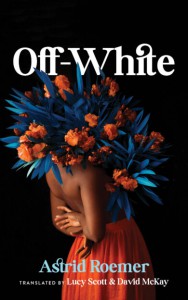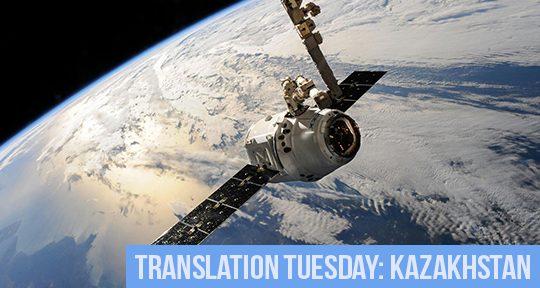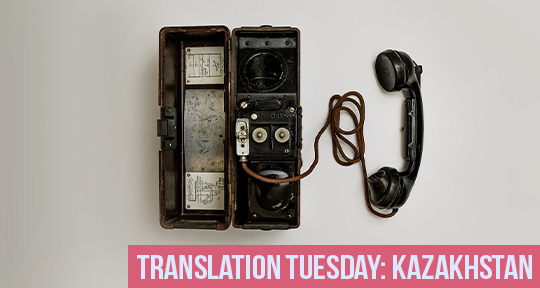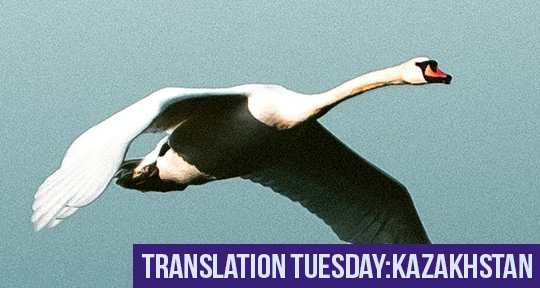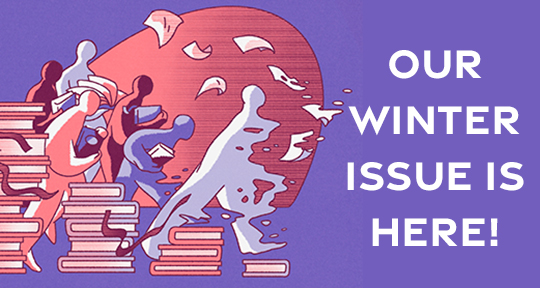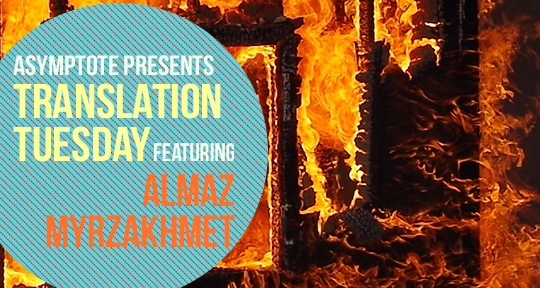This month, our editors introduce three incredible new works that delve into family, solitude, and fractured legacy. From the lyrical explorations of family by Surinamese author Astrid Roemer, the delightful oddities of Yun Ko-Eun’s sincere and humorous short stories, and the vivid, compassionate vignettes of Kazkah author Baqytgul Sarmekova, these newly published translations invite reflection, tenderness, and joy.
Off-White by Astrid Roemer, translated from the Dutch by Lucy Scott and David McKay, Two Lines Press, 2024
Review by Nestor Gomez, Editor-at-Large
In Off-White, Astrid Roemer weaves a grand, multigenerational narrative around the matriarchical figure of Grandma Bee and her family in Suriname, a South American country on the Caribbean coast. The year is 1966, and each member of the Vanta family is going about their lives in different directions, threatening the bond that is necessary to continue Grandma Bee’s vision of the family’s legacy.
While one part of this narrative is deeply embedded in identity, exploring how structures of race, class, and gender have been encoded within the family, another part is inextricably tied to loss and getting lost, as various characters all reckon with their history (cultural, personal, and traumatic) in different ways. Translators Lucy Scott and David McKay demonstrate remarkable skill and artistry in conveying the story with ease and clarity, relaying the subtle tensions in both the spoken and the unspoken. Through their work, Roemer’s prose enlivens with emotive and physical details (especially that of meals), deeply coloring the multiplicity that threatens the family’s unity while highlighting their diversity of experiences.
Even before beginning the novel, we are immediately confronted with the issue of color in the title: Off-White. The Dutch term, “Gebroken Wit,” is also included in the book’s very first page, and Roemer describes it as having multiple translated meanings, such as “broken white” or “refracted white.” In a conversation with Two Lines Press, Roemer states: “essentially, [gebroken wit] refers to refracted sunlight—a rainbow, for instance—showing a wide range of colors. . . [It] also means that sunlight always finds a way through time and always keeps gathering together.” This imagery of sunlight resonates strongly throughout the novel in the many harrowed struggles of the Vanta family: Heli’s burgeoning relationship with an older married man who teaches at her school, Louise’s ongoing incestuous relationship with her brother, and Laura’s diminishing mental health from the sexual harassment she experienced as a child at the hands of Grandma Bee’s brother, Lèon. READ MORE…


